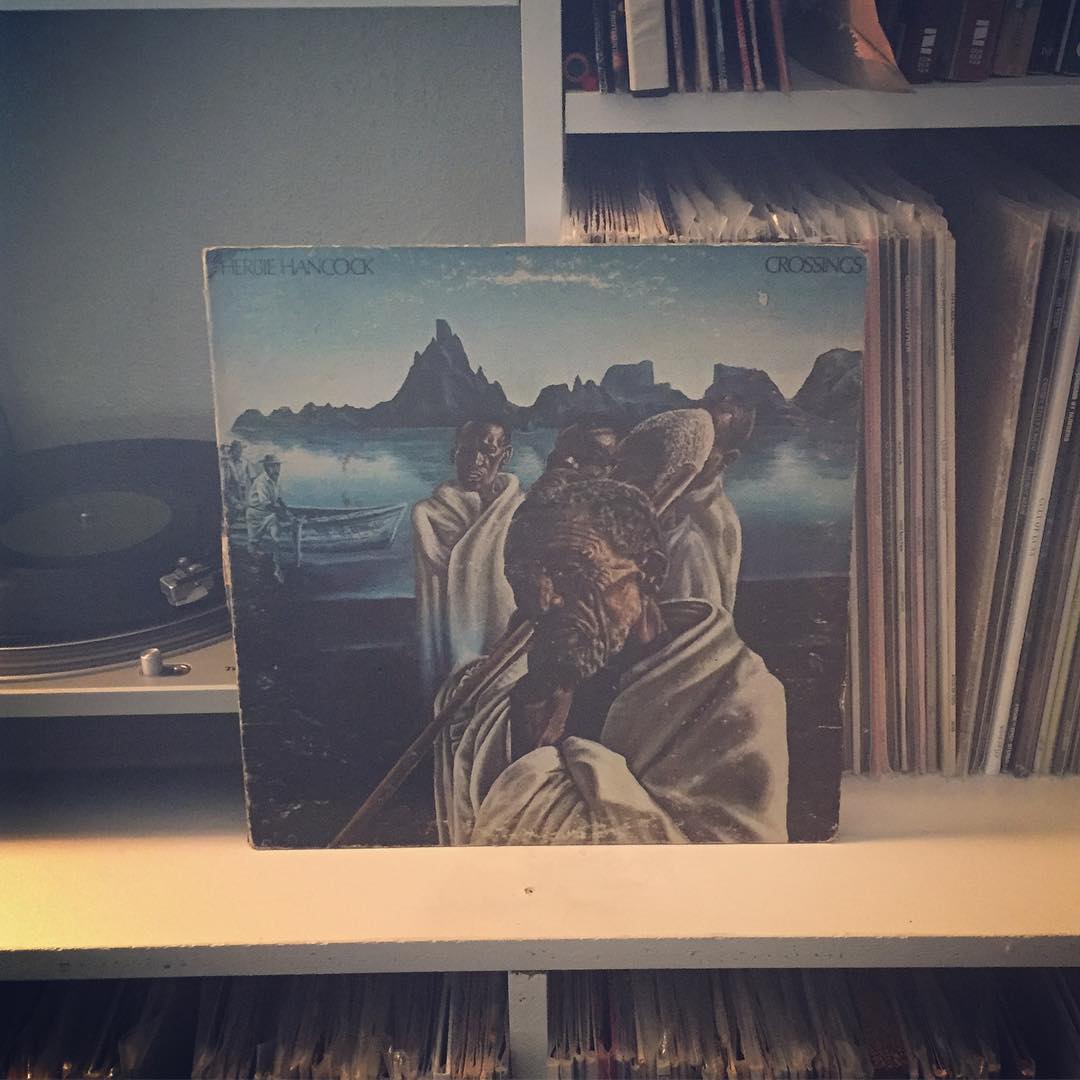
In the early 1970s, Miles Davis waged war against jazz traditionalism. His electric period, featuring the spaced out In a Silent Way and the manic Bitches Brew set a new course for the direction of jazz.
And through those years of fearless exploration and fierce iconoclasm, Herbie Hancock was right by his side.
Herbie is a legend in his own right, penning the ubiquitous standard “Maiden Voyage” and timeless jazz funk hits like “Chameleon.” So it’s no wonder that he took his lessons from Davis to his own band.
Crossings is the second record in Hancock’s Mwandishi period, a three-album run that leaned heavy on buggy electronics, spaced-out ambience, and manic improvisation. While Mwandishi and Sextant are both pretty out-there, Crossings makes them look practically tame.
“Sleeping Giant” is an amorphous, 24-minute number that starts with a choir of chaotic percussion before any melody comes in. The piece swings from all out chaos to long, droning notes, often without warning.
“Quasar” led by Bennie Maupin’s jazz flute, is a space-age jazz standard. Were it not for the swirling synthesizers, you could almost call it traditional. But that might be because it’s the only track with a recurring head. And at 7:23, it’s the shortest running time in the entire Mwandishi trilogy.
“Water Torture” is as patient as “Sleeping Giant” is manic. A buzz of cymbals, bells, and various obscure percussion open the track, before settling into a laid-back groove. The bass, sax, and Fender Rhodes join in, punctuated by washes of Moog and echo. It builds slowly across its 14-minute runtime, demonstrating a patience that seems completely alien to the unleashed first side.
While all three records in the Mwandishi period float unpredictably outside of earth’s atmosphere, Crossings is undoubtedly the most manic and irreverent of the three.